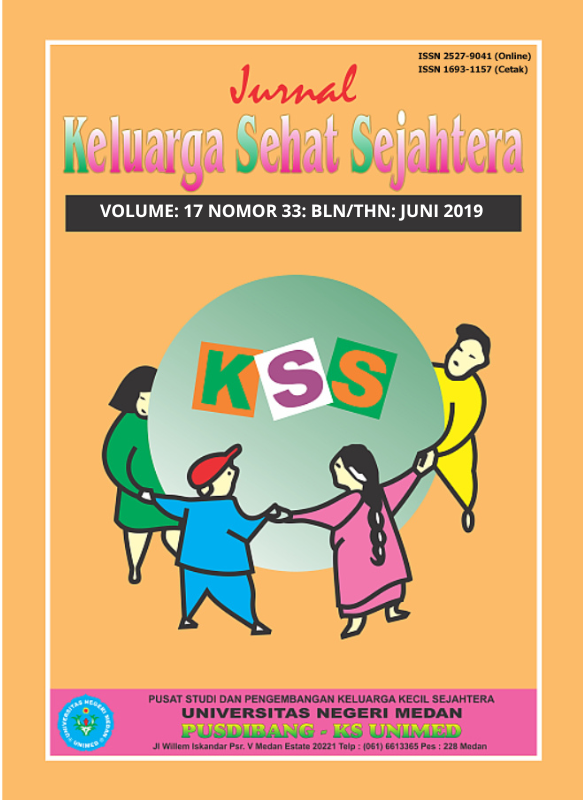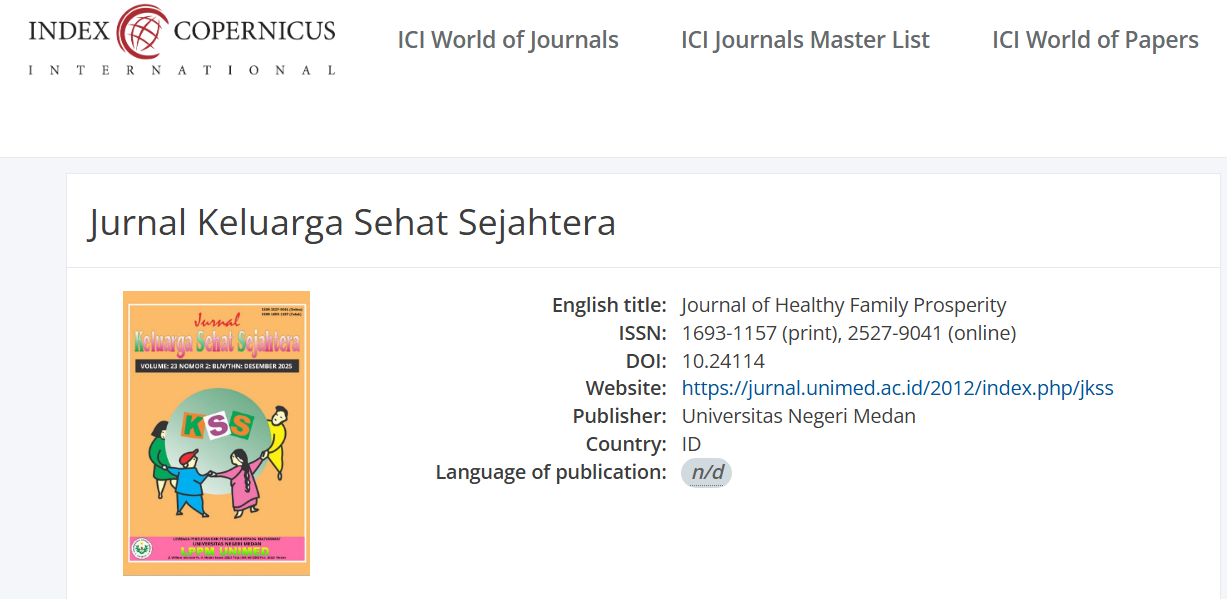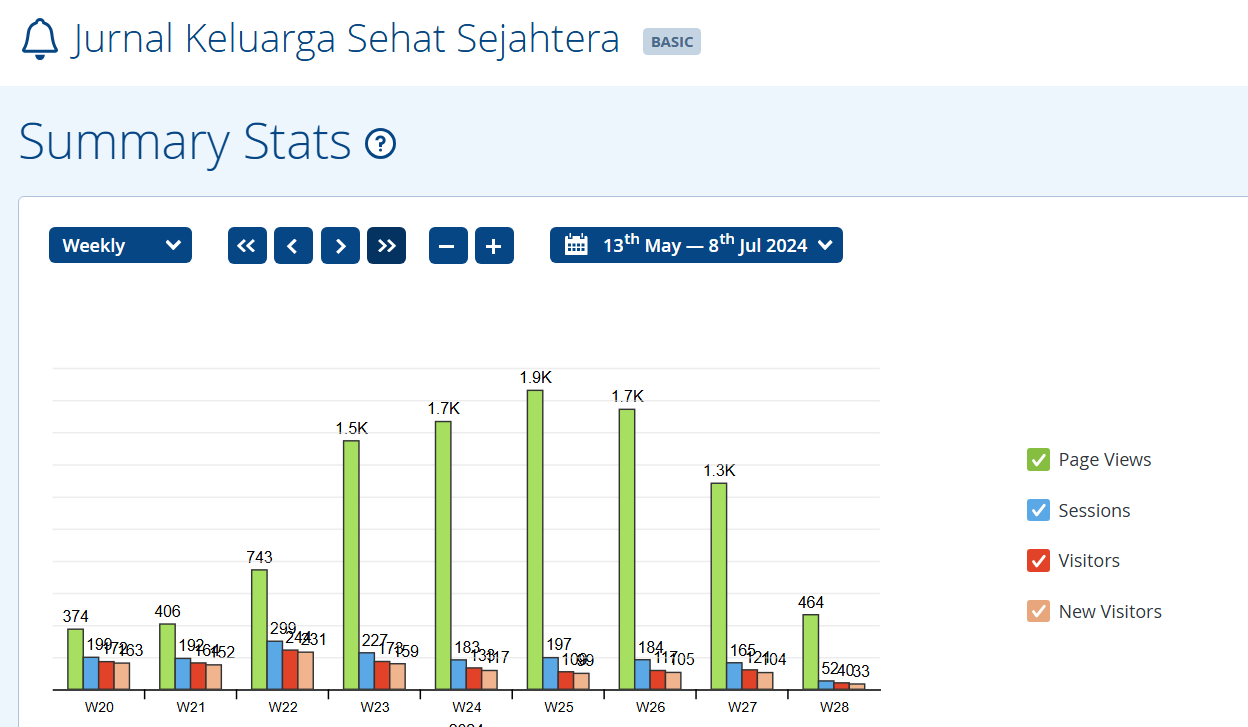Most read articles by the same author(s)
- Fauzi Kurniawan, Nurlaila Nurlaila, Faber Simorangkir, PEMBINAAN KOMPETENSI DOSEN JURUSAN PENDIDIKAN LUAR SEKOLAH MELALUI COACHING CLINIC PENULISAN ARTIKEL ILMIAH , Jurnal Keluarga Sehat Sejahtera: Vol. 16 No. 1 (2018): JURNAL KELUARGA SEHAT SEJAHTERA
- Fira Aprilia, Fauzi Kurniawan, Anifah Anifah, Ayu Wulandari Siregar, Tari Patunnisa, Serasi Zendrato, Esra Haniarta Saragih, Sentia Br Malau, Desy Greace Sidebang, Tri Oktavia Siregar, ANALYSIS OF FUNCTIONAL LITERACY IN THE VILLAGE OF TANJUNG REJO , Jurnal Keluarga Sehat Sejahtera: Vol. 23 No. 1 (2025): JURNAL KELUARGA SEHAT SEJAHTERA























